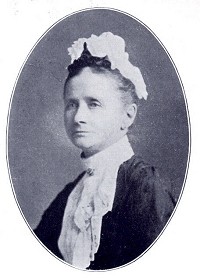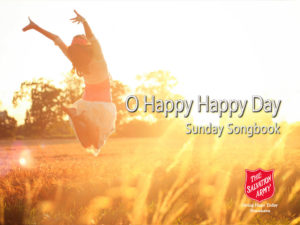All things bright and beautiful,
All creatures great and small,
All things wise and wonderful –
The Lord God made them all.
Each little flower that opens,
Each little bird that sings,
He made their glowing colours,
He made their tiny wings.
The purple-headed mountain,
The river running by,
The sunset, and the morning
That brightens up the sky:
The cold wind in the winter,
The pleasant summer sun,
The ripe fruits in the garden,
He made them every one.
He gave us eyes to see them,
And lips that we might tell
How great is God Almighty,
Who has made all things well!
Summertime – a chance to marvel at God’s creations in the world of nature! Some are listed in this song by Mrs. Cecil Alexander, who was the wife of William Alexander, an Irish bishop. She wrote a number of hymns for children in an attempt to simplify and help them understand the statements of belief in The Apostles’ Creed . The Creed statement about creation says, “I believe in God, the Father Almighty, Maker of heaven and earth, and in Jesus Christ, His only Son, our Lord.” This is based on Genesis 1:31 – “God saw everything that He had made, and it was very good.” (NIV) Mrs. Alexander continued writing such hymns for children, many of which were published in her 1848 book, Hymns for Little Children.
who was the wife of William Alexander, an Irish bishop. She wrote a number of hymns for children in an attempt to simplify and help them understand the statements of belief in The Apostles’ Creed . The Creed statement about creation says, “I believe in God, the Father Almighty, Maker of heaven and earth, and in Jesus Christ, His only Son, our Lord.” This is based on Genesis 1:31 – “God saw everything that He had made, and it was very good.” (NIV) Mrs. Alexander continued writing such hymns for children, many of which were published in her 1848 book, Hymns for Little Children.
WORDS: CECIL FRANCES ALEXANDER; MUSIC: WILLIAM HENRY MONK; ALTERNATE TUNES BY JOHN RUTTER; JULIE GAULKE
S.A. SONG BOOK, 1987 EDITION, #25; 2015 EDITION, #3
REFERENCES: MORGAN, ROBERT J., THEN SINGS MY SOUL, BOOK 2; USAWEST.ORG
Different styles – which do you like








